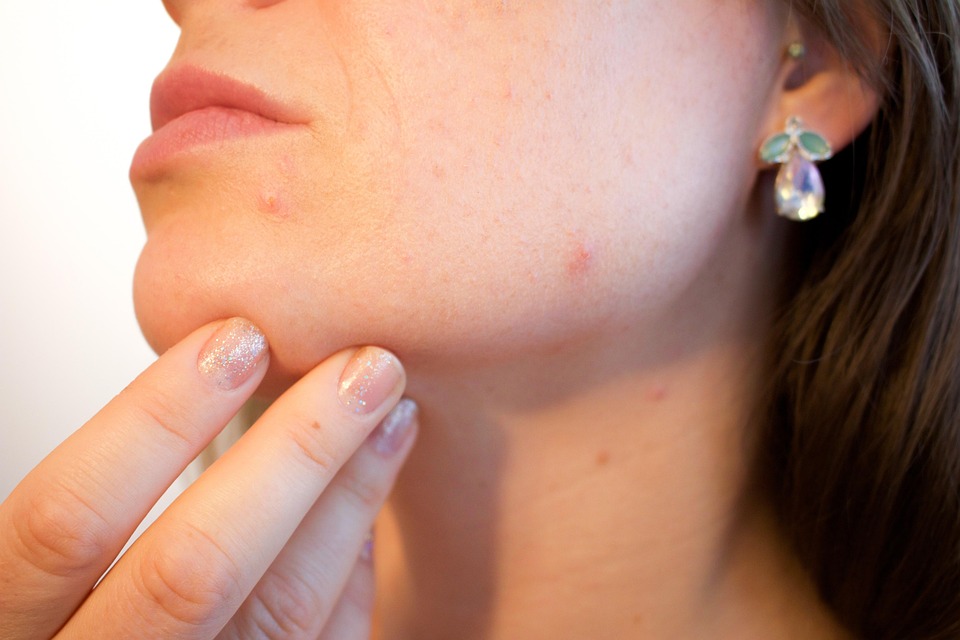Skincare for Acne: Tips for Clear & Healthy Skin
Caring for skin that is prone to acne can be quite difficult. Numerous individuals with acne find it hard to select a suitable moisturizer that maintains skin hydration without exacerbating their acne. Using an inappropriate moisturizer can clog pores and lead to additional breakouts. Therefore, it is crucial to select the most effective moisturizer for acne-prone skin.

The Significance of Skincare for Acne and Moisturizer Use
Acne treatments frequently result in skin dryness. When the skin becomes excessively dry, it may generate additional oil, consequently leading to an increase in acne. Applying a mild moisturizer aids in preventing dryness and maintaining the health of your skin.
What to Consider When Choosing a Moisturizer for Acne-Prone Skin?
Key Moisturizer Components for Acne-Prone Skin
Selecting the appropriate moisturizer for acne-prone skin can be challenging; however, concentrating on the following aspects will assist you in making the best choice:
- Non-comedogenic: This indicates that the product is specifically designed not to obstruct pores. Since blocked pores are a primary contributor to acne, it is essential to opt for non-comedogenic moisturizers to prevent breakouts.
- Oil-free formula: Heavy oils and greasy creams can exacerbate acne by increasing oiliness and obstructing pores. Seek out oil-free or “won’t clog pores” labels to maintain a fresh and clean feeling on your skin.
- Lightweight and fast-absorbing: Thick creams can feel burdensome and suffocating on acne-prone skin. Gel-based or lightweight lotion moisturizers absorb rapidly and deliver hydration without leaving a greasy residue.
- Contains acne-friendly ingredients: Certain components assist in treating acne or calming irritated skin. Salicylic acid gently exfoliates and unclogs pores. Niacinamide diminishes inflammation and redness. Hyaluronic acid hydrates without contributing oil, while ceramides aid in repairing the skin barrier.
- Fragrance-free: Added fragrances or perfumes can lead to irritation and allergic reactions, particularly on sensitive or acne-prone skin. Opt for fragrance-free products to reduce the likelihood of irritation.
- Soothing and calming: Acne-prone skin is frequently inflamed and red. Ingredients such as aloe vera, green tea extract, chamomile, or calendula possess natural soothing properties that help alleviate irritation and promote healing.
- Non-irritating and gentle: Steer clear of harsh chemicals or alcohol-based moisturizers that can dehydrate your skin and trigger increased oil production and breakouts.
- By choosing a moisturizer with these characteristics, you assist in balancing your skin’s hydration without nourishing acne-causing bacteria or clogging pores.
- Salicylic Acid: Assists in the exfoliation of dead skin cells and the clearing of blocked pores.
- Niacinamide: Alleviates inflammation and diminishes redness.
- Hyaluronic Acid: Delivers lightweight hydration without adding oiliness.
- Ceramides: Fortify the skin’s barrier.
- Glycerin: A mild humectant that draws in moisture.
- Zinc: May help decrease oil production and inflammation.
Recommended Moisturizers for Acne-Prone Skin
Here are several well-regarded moisturizers favored by individuals with acne-prone skin:
- Neutrogena Hydro Boost Water Gel
This product is lightweight, oil-free, contains hyaluronic acid, and is quickly absorbed.
- Cetaphil PRO Oil Absorbing Moisturizer SPF 30
It effectively controls oil, is non-comedogenic, and provides sun protection.
- La Roche-Posay Effaclar Mat
This moisturizer mattifies the skin, reduces shine, and is appropriate for oily, acne-prone skin.
- Cerave PM Facial Moisturizing Lotion
It includes ceramides and niacinamide, which help to repair and soothe the skin.
- Paula’s Choice Clear Oil-Free Moisturizer
This option is lightweight, non-greasy, and contains calming ingredients.
Guidelines for Applying Moisturizer on Acne-Prone Skin
- Always ensure that you apply moisturizer to clean skin.
- Utilize moisturizer two times a day – once in the morning and once at night.
- Do not forgo moisturizer even if you are using acne treatment products, as these can lead to skin dryness.
- If your moisturizer contains SPF, it will help shield your skin from sun damage.
- Conduct a patch test with new products to prevent irritation.
Final Thoughts
Choosing the best moisturizer for acne-prone skin helps keep your skin balanced, hydrated, and healthy. Avoid heavy, greasy creams and go for light, non-comedogenic, and soothing moisturizers. Remember, good skincare is not just about treating acne but also about maintaining healthy skin.